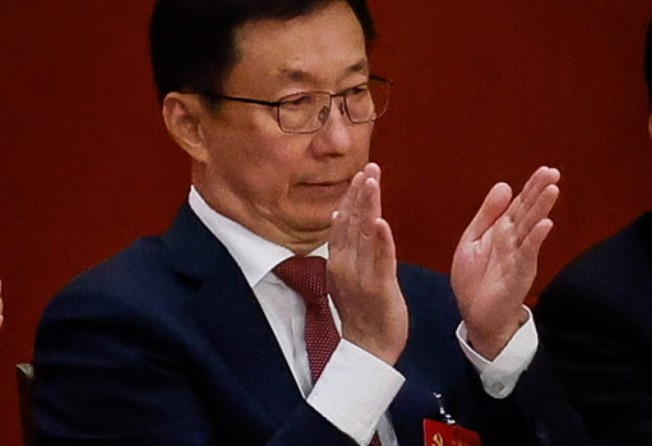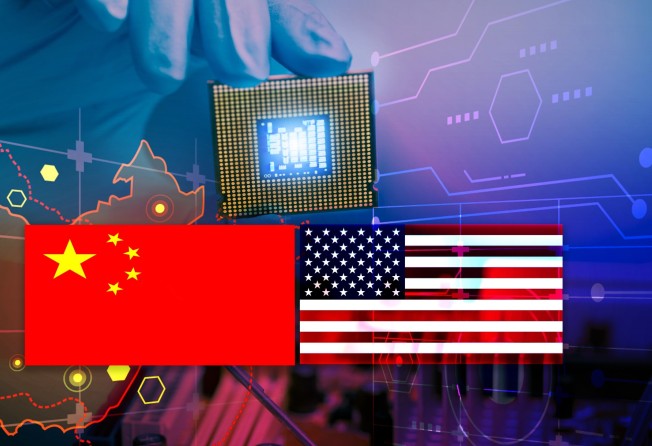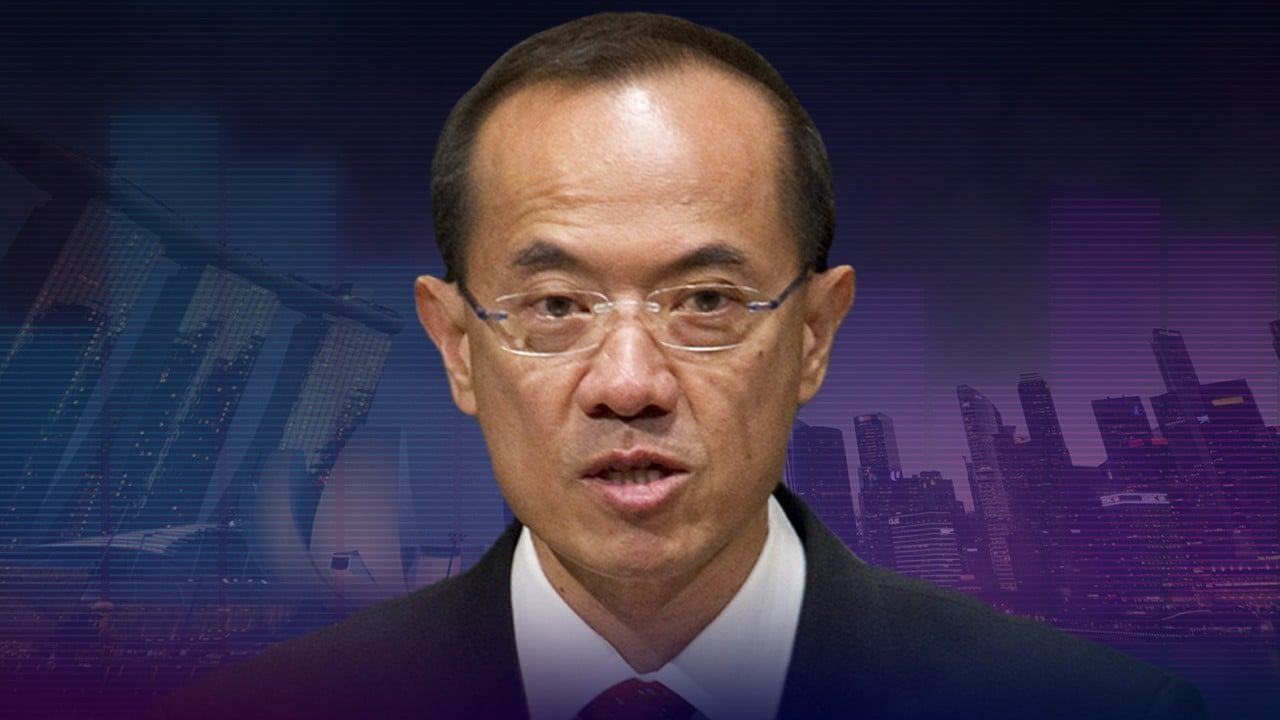
China’s Han Zheng in Singapore for bilateral forum, in sign of return of high-level interactions
- Chinese vice-premier co-chairs 18th Joint Council for Bilateral Cooperation with Singapore’s Deputy Prime Minister Heng Swee Keat, is expected to meet top leaders
- Meeting is ‘significant’ and ‘underlies the depth and breadth’ of Singapore-China ties amid recent political changes, analysts note

China’s Vice-Premier Han Zheng arrived in Singapore on Tuesday for a two-day work visit, in what analysts saw as a return of high-level interactions between the two countries after a period of relatively muted engagements due to the coronavirus pandemic.
Observers also suggested there was added significance to Han’s trip – the most senior Chinese state leader to visit the city state since the pandemic broke out in 2020 – amid recent political changes in both countries.
Han was part of the seven-member Politburo Standing Committee until a recent leadership transition within the Chinese Communist Party. He was expected to meet Singapore’s leaders including President Halimah Yacob, Prime Minister Lee Hsien Loong and Deputy Prime Minister Lawrence Wong, according to a statement from the city state’s foreign ministry.

As part of the visit, Han co-chaired the 18th Joint Council for Bilateral Cooperation (JCBC) – the highest-level annual forum between the two countries – with Singapore’s Deputy Prime Minister Heng Swee Keat. The forum is being held physically for the first time in two years.
During the meeting, the two countries agreed to strengthen cooperation in various areas including trade, finance, public health and pandemic response, and announced a total of 19 memorandums of understanding and agreements.
Heng had earlier described Han’s visit as a “significant milestone” as in-person engagements between leaders resumed progressively. It also served as an opportunity for China and Singapore to take stock of bilateral cooperation and chart the course ahead in an “increasingly uncertain global environment”, he said in an op-ed in national broadsheet The Straits Times on Monday.
“Singapore and China enjoy a long-standing partnership, anchored on the strong ties between our peoples and successive generations of leaders,” he said.
Chinese foreign ministry spokesman Zhao Lijian had on the same day echoed similar sentiments, saying bilateral relations had “maintained excellent growth”. The visit by Han would allow China to “renew friendship with old and new friends with a focus on future advancement of China-Singapore cooperation”, Zhao said.
Dylan Loh, assistant professor in foreign policy at Singapore’s Nanyang Technological University, described the meeting as “significant” because of China’s close dealings with Singapore’s leaders “for the foreseeable future”.
Wong met Han after the forum, his first meeting with the Chinese politician since he was appointed deputy prime minister in June this year. The promotion confirmed his status as Prime Minister Lee’s designated successor.
In a Facebook post, Wong said he appreciated hearing from Han about “China’s development priorities after the 20th Party Congress, and we also exchanged views on the challenges facing the global economy”.
In the recently concluded 20th Party Congress, President Xi Jinping secured an unprecedented third term as China’s top leader following a reshuffle at the apex of the Communist Party.
Han, the chair of the Central Leading Group on Hong Kong and Macau Affairs since 2018, has retired from the Communist Party’s top policymaking body. He will remain as vice-premier until the legislative body, the National People’s Congress (NPC), holds its annual meeting in March.
“Both sides are undergoing leadership changes to varying degrees and with new people, fresh insights and thinking can take the relationship further,” said Loh, though he added that it was unlikely Wong’s stance would differ greatly from his predecessors.
Loh said it was important to note that Han made Singapore one of his final overseas stops and that it “underlies the depth and breadth of the Singapore-China relationship”. It was likely that Han saw the JCBC as “one of his foreign policy legacies” and would use the forum to brief Singapore’s leaders on some of the implications of the work report from the 20th Party Congress.
Chong Ja Ian, an associate professor of political science at the National University of Singapore (NUS), said Han’s visit came at a time when the world economy was grappling with slower growth, supply chain issues and inflation, and both sides would look to address these issues.
“The visit is perhaps [a] start to a return to more regular high-level interactions,” he said.
Alan Chong, senior fellow at the S. Rajaratnam School of International Studies, suggested there were no major points of friction in bilateral ties presently apart from the heightened rivalry between China and the United States.
Singapore has long positioned itself as not taking sides in the Sino-US conflict, maintaining strong security ties with Washington and counting on China as a key trading partner.

But Chong from NUS said one tricky issue that could arise from the JCBC – which dealt primarily with economic topics – was the export of technologies from Singapore to China that were or could come under US restrictions.
China, he said, might also bring up issues related to the South China Sea or its position on Taiwan, which Beijing views as a renegade province awaiting reunification with the mainland.
“Singapore could as well raise concerns about regional stability and US-China competition,” he said, but these were less likely to be part of the formal agenda since they fell outside the forum’s immediate scope.
“It would be interesting if Singapore also brought up issues of cybersecurity, disinformation, and ethnic-based outreach, although I think these are less likely,” he added.
